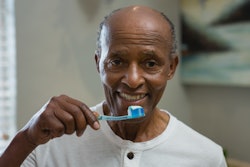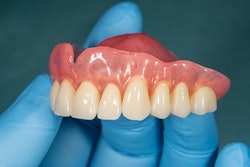Presurgery guided oral care routines may lower the risk of postoperative pneumonia and reduce hospital stay duration across different types of procedures, according to an observational study recently published in PLoS One.
Furthermore, the greatest effect was seen in upper gastrointestinal surgery, where pneumonia risk was the highest, the authors wrote.
“Implementing structured oral care at least 2 weeks before surgery reduced postoperative pneumonia and shortened hospital stays across various surgical procedures, suggesting its value as a preventive strategy for improving surgical outcomes,” wrote the authors, led by Kumiko Furuta of Ehime University Hospital in Japan (PLoS One, September 3, 2025, Vol. 20:9, e0330165 ).
This retrospective observational study analyzed 1,806 surgical patients age 20 or older who were managed postoperatively until discharge between April 2019 and March 2023. Surgical categories were chosen based on their high risk of post-op pneumonia, linked to factors such as invasiveness and long operative times, they wrote.
Patients were divided into two groups, including an early intervention group that received structured perioperative oral care for at least two weeks before surgery, and a nonintervention group that received care for less than two weeks or not at all. The oral care protocol included an oral evaluation, treatment of infections, professional cleaning procedures, denture care, and bacterial control measures. Also, patients received detailed self-care instructions.
The highest incidence of pneumonia occurred in upper gastrointestinal surgery (risk difference [RD]: 7.45%, 95% confidence interval [CI]: 4.37% to 10.53%) followed by pulmonary (RD: 3.92%, 95% CI: 2.27% to 5.58%), cardiac (RD: 2.92%, 95% CI: 0.38% to 5.46%), and head and neck surgery (RD: 2.54%, 95% CI: 0.51% to 4.58%). Lower gastrointestinal surgery showed the lowest incidence (RD: 0.94%, 95% CI: -0.13% to 2.01%), they wrote.
After inverse probability of treatment weighting (IPTW) analyses, the early oral care group had significantly lower rates of post-op pneumonia compared with the control group (RD: -3.56%, 95% CI: -4.89 to -2.23, p = 0.0004 in the matched analysis; RD: -3.68%, 95% CI: -4.61 to -2.75, p < 0.001 in the IPTW analysis). Additionally, IPTW analysis revealed shorter hospital stays in the early oral care group (mean difference: -2.65 days, 95% CI: -4.75 to -0.55, p = 0.013).
However, the study had limitations, as it was conducted at one institution. Therefore, the results may not be fully generalizable to broader healthcare settings, the authors added.
“The consistency of these results across different statistical approaches suggests that implementing standardized preoperative oral care protocols could be a valuable strategy for improving surgical outcomes,” Furuta and colleagues concluded.




















